 March
2, 2018.
One of our
graduates,
Gregoria
Acosta, has
participated
in a
micro-story contest held each
year by Cesar Egido
Serrano Foundation
and the Museum of
the Word of Madrid,
Spain, which celebrates
the 23rd of November of
each year, World Day
of the word as a link of
humanity.
The Cesar Egido Serrano Foundation and the
Museum of the Word have
named Gregoria Acosta as
“Ambassador of the Spanish
language of her country in the
world” on February 8, 2018.
Gregoria Acosta completed
a Bachelor’s program with a
major in Literature at AIU.
March
2, 2018.
One of our
graduates,
Gregoria
Acosta, has
participated
in a
micro-story contest held each
year by Cesar Egido
Serrano Foundation
and the Museum of
the Word of Madrid,
Spain, which celebrates
the 23rd of November of
each year, World Day
of the word as a link of
humanity.
The Cesar Egido Serrano Foundation and the
Museum of the Word have
named Gregoria Acosta as
“Ambassador of the Spanish
language of her country in the
world” on February 8, 2018.
Gregoria Acosta completed
a Bachelor’s program with a
major in Literature at AIU.
 March
8, 2018.
One of our
graduates,
Carlos
Araque
Osorio, has
published his thesis, “Preparation
for the scene: acting
training in a multicultural
society” in the Spanish Academic
Editorial.
Carlos Araque Osorio completed
a Doctorate program in
Arts with a major in Theatre
at Atlantic International
University.
You can read more about his
published thesis through the
March
8, 2018.
One of our
graduates,
Carlos
Araque
Osorio, has
published his thesis, “Preparation
for the scene: acting
training in a multicultural
society” in the Spanish Academic
Editorial.
Carlos Araque Osorio completed
a Doctorate program in
Arts with a major in Theatre
at Atlantic International
University.
You can read more about his
published thesis through the
 February
22, 2018.
One of our
graduates,
Carlos
Alberto
Rossi,
wrote an
article: What are the underlying
essential components of
an education system (Cuáles
son los componentes esenciales
subyacentes de un sistema
educativo). The article refers to
which elements are the most
important for an educational
system to be successful, since
quality education is one of
United Nations Sustainable
Development Goals.
Carlos Alberto Rossi completed
a Doctorate program
in Education and another
Doctorate program in Human
Resources at Atlantic International
University.
February
22, 2018.
One of our
graduates,
Carlos
Alberto
Rossi,
wrote an
article: What are the underlying
essential components of
an education system (Cuáles
son los componentes esenciales
subyacentes de un sistema
educativo). The article refers to
which elements are the most
important for an educational
system to be successful, since
quality education is one of
United Nations Sustainable
Development Goals.
Carlos Alberto Rossi completed
a Doctorate program
in Education and another
Doctorate program in Human
Resources at Atlantic International
University.
 March
15, 2018.
One of our
graduates,
Richmond
Acheampong,
has published two more interesting
articles in the Durreesamin
Journal.
Richmond completed a
Doctorate program in Journalism
at Atlantic International
University.
March
15, 2018.
One of our
graduates,
Richmond
Acheampong,
has published two more interesting
articles in the Durreesamin
Journal.
Richmond completed a
Doctorate program in Journalism
at Atlantic International
University.
 March, 2018.
This graduate student
completed the majority of the
requirements to obtain honors,
which included a
4.0 GPA, published works,
recommendation from her
advisors, patent a product,
etcetera.
Congratulations!
March, 2018.
This graduate student
completed the majority of the
requirements to obtain honors,
which included a
4.0 GPA, published works,
recommendation from her
advisors, patent a product,
etcetera.
Congratulations!
 Call for Papers
Call for Papers Call for Papers
This Conference will be held
20-24 June 2018, in Elenite,
Bulgaria.
The purpose of this meeting
is to bring together researchers
and scientists with interests in
agriculture, ecology and food
production to address recent
research results and to present
and discuss their ideas, theories,
technologies, systems,
tools, applications, work in
progress and experiences.
The papers presented will be
published in open access journal
indexed by AGRIS. Representatives
of 76 universities, institutes, laboratories and
other organizations from 35
countries took part in the
previous edition of the conference
in 2017.
The official language of
the conference is English.
Translation and interpreting
services will not be available.
The conference room is set
up in classroom style (with
tables) and has a capacity of
300 people.
Find the topics of
the Conference and further
information here:
http://www.science-events.
org/agriculture
Call for Papers
This Conference will be held
20-24 June 2018, in Elenite,
Bulgaria.
The purpose of this meeting
is to bring together researchers
and scientists with interests in
agriculture, ecology and food
production to address recent
research results and to present
and discuss their ideas, theories,
technologies, systems,
tools, applications, work in
progress and experiences.
The papers presented will be
published in open access journal
indexed by AGRIS. Representatives
of 76 universities, institutes, laboratories and
other organizations from 35
countries took part in the
previous edition of the conference
in 2017.
The official language of
the conference is English.
Translation and interpreting
services will not be available.
The conference room is set
up in classroom style (with
tables) and has a capacity of
300 people.
Find the topics of
the Conference and further
information here:
http://www.science-events.
org/agriculture

| Amílcar Fernandes Famado Quiala Master of Science Computer Engineering Angola |
Yava José Júnior Bachelor of Science Human Resource Management Angola |
Antonio Joaquim Miezi Vita Doctor of Economi cs Economics Angola |
Roberto Allo Bachelor of Science Seismic Engineering Argentina |
Jacqueline Ivanna Cara Master of Arts Contemporary Visual Arts Argentina |
Edgardo Aníbal Parkinson Bachelor of Science Psychology Argentina |
| Gustavo Daniel Di Paolo Doctor of International Relations Nationalisms and International Security Argentina |
Ramundo Ruben Dario Master of Education Education Argentina |
Mary Cruz Chungara Romero Bachelor of Science Clinical Psychology Bolivia |
Maria Pia Giussani Salinas Bachelor of Business Admi nistration Business Administration Bolivia |
Ignations Chimuti Bachelor of Science Physical Education and Sports Coaching Botswana |
James Gondwe Chisambi Doctor of Philosophy Intercultural Communication Botswana |
| Nana Vincent Doctor of Science Project Management Burkina Faso |
Sinzohagera Emmanuel Doctor of Business Admi nistration Business Administration Burundi |
Buh Wung Gaston Master of Science Environmental Science Cameroon |
Mario Nelson Francisco Marcelo Bachelor of Science Biology Canada |
Javier Palomino Bachelor of Science Psychology Chile |
Silvia Del Socorro Gómez Oquendo Doctor of Philosophy Strategic Plann ing Colombia |
| Jhon Alejandro Rojas Burgos Bachelor of Science Industrial Engineering Colombia |
Yani Milena Cordoba Mosquera Doctor of Philosophy Translation and Interpreting Colombia |
Jose Arceliano Palacios Mosquera Doctor of Education Education Colombia |
Adriana González Acosta Bachelor of Science Clinical Nutrition Costa Rica |
Judith Alexa Rodón Quesada Doctor of Business Admi nistration Business Administration Costa Rica |
Rocío Yanett Batista Acosta Doctor of Education Educational Sciences Domi nican Republic |
| Filiberto Cruz Sánchez Doctor of History Contemporary American History Domi nican Republic |
J. Víctor Tapia V. Master of Management Management Ecuador |
Jazmín del Rocío López Castaneda Doctor of Science Epidemiology El Salvador |
Petronilo Rios Cruz Doctor of Philosophy Psychology El Salvador |
Patricio Tobachi Meñe Master of Human Resources Human Resources Equatorial Guinea |
Wassie Azashe Aleme Doctor of Philosophy Business Management Ethiopi a |
| Abraham Osei Doctor of Philosophy Entrepreneurship Ghana |
Prosper Rick Nkudefe-Adjotor Doctor of Philosophy Statistics Ghana |
Erwin Enrique Sanche Hoenes Bachelor of Science Civil Engineering Guatemala |
Manuel Fernando Pontaza Lazo Bachelor of Marketing Commercialization Guatemala |
Marco Antonio Destephen Soler Master of Actuarial Science Finance Honduras |
Patrick Everton Smith Master of Business Admi nistration Finance Jamaica |
| Joseph Oluoch Onyango Doctor of Philosophy Economics Kenya |
Sami J.El-Azar Doctor of Business Management Business Management Lebanon |
Asma’a Al Sakati Bachelor of Science Architecture Lebanon |
Alfred Babatunde Osunsanya Doctor of Philosophy Strategic Plann ing and Management Malawi |
Laura Karina Uribe Fentanes Doctor of Science Health Sciences Mexico |
Laura López Bianchi Bachelor of Science Nutrition Mexico |
| Aicha Edfouf Doctor of Arts Arts Morocco |
Ntakirutimana Eliphaz Doctor of Education Educational Administration Mozambi que |
Dennis Ufot Doctor of Philosophy Economics Nigeria |
Sylvanus Bitebobo Amah Bachelor of Science Industrial Engineering Nigeria |
Syed Mizan Siddiqi Master of Public Health Public Health Nigeria |
Umeh Elizabeth Egodu (Rev Sr) Bachelor of Science Public Health Nigeria |
| Yonis Beitia Polanco Post-Doctorate of Science Computer Science Panama |
Miguel Angel Samudio Boniche Post-Doctorate of Science Educational Administration Panama |
Eridenia Martínez Córdoba Bachelor of Sociology Sociology Panama |
Gianny Mario Navarro Tito Bachelor of Architecture Architectural Design Peru |
Randel José Hernández Herrera Master of Business Admi nistration Quality Control Peru |
Alejandra Inés Rodríguez Lora Bachelor of Music Music Therapy for Wellness Peru |
| Bob Misheck Koker Bachelor of Arts Real Estate Management Sierra Leone |
Patricia de Miguel Rodríguez Bachelor of Arts Communication Spain |
Masuma Jeraj Bachelor of Science Psychology Tanzania |
Benny Arphaxad Ngereza Master of Public Health Public Health Tanzania |
Obua John Bosco Bachelor of Science Public Health Uganda |
Iván Marcelo Pini Andrada Bachelor of Business Admi nistration International Business and Logistic Uruguay |
| Souley Hamadou Master of Science Accounting USA |
Roberto Muñoz-Robles Doctor of Philosophy Education USA |
Agbovi Stephen Foli Bachelor of Science Human Resources USA |
Daniela Maravankin-Freund Master of Arts in Education Jewish Studies USA |
Francis Manuel C. Padron Velarde Post-Doctorate of Science Health Science Venezuela |
Jackie Chibulika Chiwele Doctor of Business Admi nistration International Investment and Finance Zambi a |
| Kasongu Fred Doctor of Science Engineering Management Zambia |
Balbina Daes Pienaar Master of Business Admi nistration Business Negotiation Zimbabwe |
Bright Abel Gombedza Bachelor of Science Civil Engineering Zimb abwe |
 Edward Tsai
Edward Tsai  Daniela Maravankin-Freund
Daniela Maravankin-Freund Samuel Jos
Samuel Jos Girima Tona
Girima Tona
Abstract
National Fresh Produce Markets
(NFPMs) in South Africa are
an integral, although diminishing
part, of the price-making,
distribution and marketing of
fresh produce in South Africa.
There are 19 commissiondriven
NFPMs in South Africa,
with the Johannesburg Fresh
Produce Market (FPM) being
the largest (35% market share).
It should be noted that the four
largest NFPMs (Johannesburg,
Tshwane, Cape Town and Durban) represent more than
74% of turnover and volume
throughput at all NFPMs. Since
deregulation in 1996/1997, very
little volume growth has occurred
on NFPMs.
However, over the same
period, overall production of
fresh produce has increased
substantially. National production
figures for potatoes
show that NFPMs, including
Johannesburg FPM, have
steadily lost market share
since 1996/1997. However, the
most significant market share
loss for NFPMs has occurred in
the fruit sector. The performance
of NFPMs relative to
the production growth in the
agricultural sector indicates
that NFPMs are finding it difficult
to grow their operations
and respond to the challenges
of a deregulated agricultural
sector. Throughputs of most
of the smaller NFPMs indicate
downward trends.
1. Introduction
Fresh produce markets
within South Africa’s borders
fall under the management
of the respective municipalities
and are governed by the
laws of each. As the pressure
mounts for the need for modern
fresh produce marketing,
it is gradually impacting
on the FPMs. The necessary
changes that were essential,
did not take place, and it
became clear that the markets
did not have the incentives
or effort needed, in terms of
management (political bosses),
to enforce change. Privatization
became even more crucial
as it was now perceived as the
only answer to the problem. It
seemed logical that a privately
run market would not
be hamstrung by bureaucracy
and political inertia (Louw
et al, 2005; HSRC, 1990). South
African fresh produce markets
(FPMs) started out as meeting
places between producers and
consumers, where they could
trade under the control of a
government body or official.
These places were centrally
located and aimed at serving a
town and its hinterland. Economic development
led to the urbanization of
a large portion of the rural
population. This, in turn, led
to the development of central
markets that replaced local
markets serving a limited
geographical area. A central
market usually served two or
more towns. In 1967, a Department
of Agricultural Economics
report recommended the
formation of national markets
to separate markets of national
interest from those of local
interest. Fresh produce markets
include National Fresh
Produce Markets (NFPM) as
well as privately owned markets
not controlled in terms of
bylaws (NAMC, 2005; DoA, 2005).
The four largest markets of
fresh produce in South Africa
are Durban, Johannesburg,
Cape Town and Pretoria. The
four medium markets include
Bloemfontein, East London,
Pietermaritzburg and Port
Elizabeth, and the six smaller
markets are Kimberly, Klerksdorp,
Springs, Uitenhage,
Vereeniging and Welkom.
The fourteen markets were
controlled by the various
local authorities, who obtained
their powers to run the
markets from the provincial or
the central government. The
central meeting place was thus
replaced by an economic institution
that became the pivot
of South Africa’s distribution
network of perishable products.
At the moment, the large
majority of FPMs in South Africa
are owned and managed
by local authorities whom
seem to lack a clear vision in
terms of taking this business
forward.
While the larger FPMs are
still wholly owned by the
council, the smaller FPMs
have private companies in
top management and they
have all been ‘privatised’ to
some extent. All fresh produce
markets in South Africa are,
however, not driven by profit
motives, but rather to be a service
to communities (homes,
farms and the industry) (NAMC,
2000; HSRC, 1991). The role of
the fresh produce market
was (and still is) to provide
the necessary and obvious
facilities to compensate for
and cover the growing gap in
the market that was emerging.
The provision of these FPMs
was to allow for equal trade
opportunities for large scale,
commercialized producers and
smallholder farmers producing
small quantities of produce.
The implementation of these
markets started as a government
act.
They are legally bound to
allow anyone to engage in
trade without discrimination
based on size, colour or
origin. The FPMs have allowed
for small scale producers to
find a market and sell their
product easily, as the barriers
to entry into the market would
otherwise be near impossible,
as large corporate buyers
and marketing agents are not
interested in procuring small,
fluctuating quantities and/or
varying quality fresh produce
from these smallholders
(NAMC, 2000).
However, smallholder farmers
as well as the ‘previously
disadvantaged’ find it difficult
to supply to the NFPMs
because of lack of quality and
sustainable volumes. The topic
will highlights a number of
possible models with regard to
ownership and management
of NFPMs, namely:
• Department/business unit
option
• Corporatization
–Municipal entities
• Public entities
• Divestiture/private entity
• Municipal public–private
partnerships (PPPs)
• A combination of the above
2. Description
National and international
trends point towards the need
to separate ownership (land
ownership) and the management
(business) of fresh
produce markets in order
to achieve efficient business
practices. The rationale
underpinning this argument
is that research shows that
since 1999, very little volume
growth has occurred in
National Markets throughput,
despite substantial growth in
overall fresh produce production.
Therefore fresh produce
markets did not keep up with
the growth in the industry and
lost market share.
While the number of open
markets is increasing with
rising per capita incomes,
urbanization, and foreign and
domestic investment, there are
a number of transformations
are occurring in the Mexican
fresh fruit and vegetable marketing
system.
There are a number of new
entrants and new forces which
traditional marketing channels
have to adapt to. The past
decade has seen liberalization,
which has presented
participants in fresh produce
marketing with challenges and
opportunities. Retail chain
stores from the United States
and Europe such as Wal-Mart,
Price Club and others have
entered the Mexican market
often in partnership with
existing Mexican supermarket
chains.
The market environment
is changing. Small, specialized
shops and stalls —corner
stores, public markets, and
street stalls— that procure
produce from governmentbuilt
central wholesale
markets still account for a big
portion of total produce purchases.
But things are changing
rapidly, especially in the
northern Mexican states. The
supermarket chain format
embodies economies of scale,
improved quality standards,
cold chain management, and
centralized inventory optimization.
Supermarkets also
attempt to purchase produce
directly from producing regions, bypassing, and thus
threatening, the dominant
role of traditional wholesale
markets. Generally wholesale
markets are owned and managed
by the local authorities
and their staff.
In Brazil, the traditional
fresh produce market comprises
of a primarily physical
market channel served by a
large number of geographically-
dispersed small farmers; a
large number of wholesalers
who are based in the public
wholesale markets and work
in close proximity to one another
and are often inclined to
specialize their trade in their
in particular products; and
many small traditional retailers
including open-air market
vendors, corner markets, small
and medium-sized supermarkets
and food service firms.
Although government constructed
centralized facilities
for fresh produce procurement,
in recent times procurement
has shifted away from
the public wholesale markets
towards direct purchases
from production regions and
instituted more formal governance
of relationships with
suppliers (Farina and Machado,
1999). Firms are able to reduce
the marginal search costs of
produce acquisition as the
volumes of throughput grow
through subsequent economies
of scale even though
these investments involve
high startup costs (Mainville,
2004). The change in procurement
strategies has led to a
proliferation in the number
of specialized wholesalers,
working independently of the
traditional wholesale markets
and based in these areas.
These wholesalers are
known as classifiers and supply
retailers with differentiated
products and services at competitive
prices. South Africa
adopted the British markets
system in the early 1900s thus
there are many similarities
with regard to management
and ownership in the UK. All
wholesale markets in the UK
and many parts of Europe began
as a municipal institutions
and majority have remained
as such. There are however a
number of ownership models
and combinations. For
instance most of the local
authorities maintain ownership
of the buildings and the
market management is appointed
by them and on their
payroll. Almost all services on
the markets are outsourced
and most of the markets’ management
only consists of four
to ten persons.
The ownership of markets
varies but in all the cases the
owners of the land, buildings
and the management
remains in the hands of the
local authority. A few small
private markets have appeared
on the scene in the
last few years but not much is
known about them. Almost all
of the markets have private
shareholders. Some markets
have restricted shareholder
to wholesalers on the market
but other markets have sold
shares to the general public.
In most cases the market
owners retain the majority/
controlling shareholding.
Market agents act on behalf
of the producer and operate
freely on the market floor. The
market agents trade according
to the provisions of the Agricultural
Produce Agents Act
(No. 12 of 1992). A market agent
renders marketing advice and
services to the producers. The
agent is responsible for payment,
via a trust account, to
the producer for fresh produce
sold. The market agent is in
turn remunerated by the producers
on an ad valorem basis,
which may be up to 7.5% of
the gross value of the produce
sold. With regards to buyers,
i.e. retailers, wholesalers
and exporters, market agents
ensure suitable quantity, and
adequate and consistent supply
of produce is available for
each of the buyer categories.
In addition, agents assist with
the loading of bulk purchases.
Ownership and management.
National Fresh Produce
Markets (NFPMs) fall within
the sphere of local government
and are functional areas
of exclusive and administrative
municipal competence.
Since most of the municipal
services or functions contained
in Part B of Schedules
4 and 5 of the Constitution
(with the exception of basic
municipal services) appear to
be services or functions which
municipalities may elect to provide, it is also possible for
a municipality to decide not to
undertake a particular function
or service.
Due to the complicated
nature of the legislation and
the uncertainty around the
process and applicability of
Section 78 of the Municipal
Systems Act investigations
to various services, it has
been suggested that a Senior
Advocate be approached for
an opinion on this particular
matter. Municipal participation
in NFPMs. Section 156
of the Constitution provides
that a municipality may make
and administer bylaws for
the effective administration
of matters listed in part B
of Schedules 4 and 5 of the
Constitution. The view of a
number of stakeholders is that
current NFPM bylaws are archaic
and do not take account
of legislative and institutional
changes, and accordingly their
effectiveness is questioned It
is thus suggested that a new
set of bylaws be drafted in
terms of the current legislative
environment. Should a coordinating
body or institution
for NFPMs be established (as
recommended by the Section
7 Committee), the drafting of a
common set of bylaws for the
regulation of NFPMs by municipalities
throughout South
Africa would be an effective
way to regulate the industry
while ensuring a consistent
and uniform approach to
the regulation of NFPMs and
the implementation of the
coordinating body. In order to
achieve this it would be necessary
to undertake a nationwide
rationalization.
3. Benchmarking
with other countries
In Vietnam the dominant
marketing chain in Vietnamese
cities is the unstructured
and unregulated wholesalers
catering for retail markets
and hawkers that form the
major part of the fresh food
market structure. Vietnamese
consumers prefer to buy their
fresh foods in public “wet”
street markets or from street
hawkers. Despite the growing
market share of supermarket
chains in South East Asian
cities, fresh food purchases are
still done in wet retail markets
and Vietnam is no different as
wet markets are still very competitive
in terms of price and
freshness (Cadilhon, 2003).
However, there is evidence
of coexisting forms of different
marketing channels rather
than substitution of one by
the other. The government
program to regulate the market
by banning old wholesale
markets and through recent
frequent raids of hawkers in
wet markets has generally
contributed positively to the
growth of modern retailers in
Vietnam (Tam, 2004).
Previously, wholesale markets
were under state control
as government built and regulated
their activities. However,
the past 12 years have seen
the declining share of state
involvement in the retail sector
(Tam, 2004).
However, although the
rules and laws are important
constraints, informal constraints
may also explain some
aspects of economic activities
in Vietnam. Cultural and
social factors form part of the
latter institutions but have
been overlooked by fresh food
marketing studies in South
East Asia although they are
recognized as determinant
factors in other sub-sectors.
In the food markets of South
East Asian countries, trust is
an important component of
transactions and contracts between
parties to secure transactions
are rare and although
the courts exist, they are
powerless to enforce existing
agreements or are mistrusted
(Cadilhon, 2003).
Trading objectives of fresh
produce companies have
changed over the last few
years. Marketing and exporting
of fresh products is no longer to
obtain revenue for the nation
or hard currency for the whole
economy. It is now becoming
focused on meeting customer
needs and make profits for the
companies. Target markets are
being selected and some marketing
research is being done
in-house or by commissioning
marketing research agencies.
Marketing departments are
also being formed. Attention is
increasingly paid towards optimizing
the profitability of the
product mix and brand names
are becoming valuable. Europe
(including the UK) has several
kinds of markets including
Wholesale markets, Markets of
origin/distribution and street/
flea/retail markets. These are
reviewed in the subsequent
text. Unlike the situation in
RSA, traders on British fresh
produce wholesale markets are
all wholesalers.
The commission agent system
currently used in RSA (adopted
from similar European
systems in the 1900s) stopped
operating on their largest market
(New Covent Market) in
the early 1960s. Wholesalers’
operations include procuring
(taking possession of) produce,
placing them on their stands
in the market and reselling for
a profit. This stock of produce
is acquired from a wide range
of sources including direct orders,
through agents, brokers,
and importers. The produce is
mainly composed of vegetable
imports from Holland &
Belgium and fruits from USA,
Australia, South Africa and
South America.
To be continued

An essay does not have to be just words. You can add
photos, graphs, tables and even data straight from
Excel.
One of the great advances in computer programs was the
ability to insert information from one program into another.
If you write an essay in Microsoft Word, you can insert work
directly from an Excel spreadsheet where your data is. You
simply select the area that you want to insert, copy it, and
then paste it into your Word essay. It is simple.
Very few students actually do this. Seriously, inserting part
of an Excel spreadsheet into a Word essay should be extremely
common. Here are some examples...
Insert a table of
data that you
prepared in
Excel. The data
is much easier
to read in table
format. So instead
of just trying to explain the
table in your essay, include the
table. It makes it so much easier
for the reader to understand what
you are writing.
Insert any type of graph made in Excel. Just select the graph,
copy it and paste it into your essay.
Select the results of a regression analysis and just copy and paste
it directly into the essay.
Excel gives wonderful formats for tables,
which include borders and colors. They will
look great in your essays.

When we are part of a
group of students or a
group of employees and they
tell us that we have to work
with this or that document,
and we read it, we begin to
listen to colleagues who say:
Did you understand what the
article says? And answers like:
I read it several times and
nothing is understood.
To read a scientific document
there are methods such
as the American PQRST: Preview,
Question, Read, Speak,
Test by T. Staton and the
Spanish PLEMA: Pre-reading,
Reading, Outline, Memory,
Self-evaluation.
Someone out there will say:
the document what it says is
this, that and the other. In the
case of groups of students,
some student appears saying:
I already have everything
that had to be done. Many
ask themselves, deep inside:
What did he do to understand
everything said there?
Simple; Scientific documents
have structures that are
rarely taught and students and
employees learn as a result of
school or work.
We can ask ourselves. Why
during the studies they don’t
teach us to work with scientific
documents and they’re
expected we learn it only
by reading what we have to
study? The answer is that
many skills that are necessary
in learning are considered
acquired as a consequence
and they are not identified as
the first objective. There are
different intelligences, so that
each person has differences
with the others.
Given the situation that
occurs in learning, the United
Nations Educational, Scientific
and Cultural Organization
(UNESCO) formed an international
Commission to analyze,
in a general way, what
happened in it. The commission
was directed by Jacques
Delors and was officially
established in 1993.
The Report to UNESCO of
this International Commission
on Education can be seen
in the work published with the title: Learning treasure
within. From the study of this
Commission emerged very
important concepts such as
those that they called
The four pillars of education:
a) Learning to know
b) Learning to do
c) Learning to live together
d) Learning to be
They also established the
concept of Education
throughout life.
Pedagogy and Psychology,
at the end of the twentieth
century, were focused
on evaluation as a means of
obtaining the rapid results of
the educational process for
the development needed by
globalization or world trade.
Thus with world trade, the
problem of differences in educational
processes or curricular
designs of countries where
some enjoy better means than
others to achieve graduates
with greater scientific
knowledge arises immediately.
Therefore the study of the
UNESCO commission regarding
the Four Pillars that they
established and the concept
of Education for life was very
important.
As you have to learn to
learn one of the skills of learning
to learn is to learn to study
and learn to study is based on:
learning to read a scientific
document to explain and apply
that knowledge.
To read a scientific document
there are methods such
as the American PQRST: Preview,
Question, Read, Speak,
Test by T. Staton and the
Spanish PLEMA: Pre-reading,
Reading, Outline, Memory,
Self-evaluation.
We propose some elements
of the two methods that we
believe give better results, in
addition to what experience in
scientific work has allowed us
to identify.
1. Preview
a) See the titles and subtitles
of the document. Review the
prologue, index, graphs, reference
notes, bibliography and
the Scientists mentioned there
as to who they are.
b) Read the first line of
each paragraph and relate the
knowledge that we have about
the subject with those we are
reading.
c) Read what is the purpose
or objective of the
document that will be read
to guide thinking or rational
operations.
d) Read paragraph by paragraph
and underline the main
ideas.
e) Express in oral form the
ideas of the paragraphs that
we have already outlined.
f) Prepare diagrams or summaries
according to what we
are most capable of.
g) Read the underlined.
2. Read
Read paragraph by paragraph
relating the graphs, statistics
and conceptual maps,
if any.
3. Write
As an essay
a) Elaborate the central part
of the essay or body of the
work explaining each of the
concepts that we underline in
the Preview paragraphs.
b) Introduce the references
that we consider necessary
in the central part or body of
the work. Enter them in the
order in which they appear in
Preview.
In the references we must
choose one form of the four
in which they can be worked;
AIU suggests the APA Model
(American Psychological
Association).
c) Prepare, after finishing
the essay body, what will be
our introduction: explain in a
general way what the work is
about, mention the authors we
saw, mention in a general way
their contribution, write about
the difficulties we find, if is
that there were.
d) Write the bibliography
regarding the document that
we work with in the same
model chosen for the direct
or indirect quotations that we
work with.
We can think that doing all
these activities will take a long
time; it may be that this is the
case with the first document,
but with the exercise carried
out every time we have
to work on a document we
become experts and feel better
and better because of the
results we obtain.
If you are student your work
will be better every day and
you will feel more freely because
you learn not to depend
on others, you learn to be free,
independent and you will
feel very useful in supporting
them when you hear they say:
I don’t understand what this
document says.
You have to learn to
learn to be free from fear of
evaluations.
Learn to read and your
student life will be extraordinary
and you will become
part of the people who learn
throughout life enjoying the
pleasure of learning instead of
suffering.
BIBLIOGRAPHY. Delors, J. (2000). La Educación Encierra un
Tesoro. México: Correo de la UNESCO. | Banco Mundial. Comunicado
de prensa, septiembre 26, 2017. El Banco Mundial advierte
sobre una “Crisis del aprendizaje” en la educación a nivel Mundial.
http://www.bancomundial.org/es/news/press-release/2017/09/26/
world-bank-warns-of-learning-crisis-in-global-education | García -
Huidobro B. C. y otros (2005). A estudiar se aprende. Metodología
de estudio sesión por sesión. México: Alfaomega. | Olave – Arias,
G. y otros. (2014). Cómo escribir la investigación académica. Desde
el proyecto hasta la defensa. Bogotá: Ediciones de la U. | Organización
de las Naciones Unidas para la Educación, la Ciencia
y la Cultura (UNESCO), página oficial. Educación. http://unesdoc.
unesco.org/images/0024/002472/247234s.pdf
 A no-risk childhood presents a risk
in and of itself: That kids will not
develop the bounce that comes from
enduring some bumps along the way.
And so, writes Ellen Barry on the New
York Times:
“Educators in Britain, after decades
spent in a collective effort to minimize
risk, are now, cautiously, getting into
the business of providing it.
Four years ago, for instance, teachers
at the Richmond Avenue Primary
and Nursery School looked critically
around their campus and set about, as
one of them put it, “bringing in risk.”
Out went the plastic playhouses and
in came the dicey stuff: stacks of twoby-
fours, crates and loose bricks. The
schoolyard got a mud pit, a tire swing,
log stumps and workbenches with
hammers and saws.
“We thought, how can we bring that
element of risk into your everyday
environment?” said Leah Morris, who
manages the early years program at
the school in Shoeburyness. “We were
looking at, OK, so we’ve got a sand pit,
what can we add to the sand pit to
make it more risky?”
Now, Ms. Morris says proudly,
“we have fires, we use knives, saws,
different tools,” all used under adult
supervision. Indoors, scissors abound,
and so do sharp-edged tape dispensers
(“they normally only cut themselves
once,” she says).
A no-risk childhood presents a risk
in and of itself: That kids will not
develop the bounce that comes from
enduring some bumps along the way.
And so, writes Ellen Barry on the New
York Times:
“Educators in Britain, after decades
spent in a collective effort to minimize
risk, are now, cautiously, getting into
the business of providing it.
Four years ago, for instance, teachers
at the Richmond Avenue Primary
and Nursery School looked critically
around their campus and set about, as
one of them put it, “bringing in risk.”
Out went the plastic playhouses and
in came the dicey stuff: stacks of twoby-
fours, crates and loose bricks. The
schoolyard got a mud pit, a tire swing,
log stumps and workbenches with
hammers and saws.
“We thought, how can we bring that
element of risk into your everyday
environment?” said Leah Morris, who
manages the early years program at
the school in Shoeburyness. “We were
looking at, OK, so we’ve got a sand pit,
what can we add to the sand pit to
make it more risky?”
Now, Ms. Morris says proudly,
“we have fires, we use knives, saws,
different tools,” all used under adult
supervision. Indoors, scissors abound,
and so do sharp-edged tape dispensers
(“they normally only cut themselves
once,” she says).
 More than 15,000 scientists from
184 countries have issued a
warning: Mankind must take immediate
action to reverse the effects of
climate change, deforestation and species
extinction before it’s too late.
The warning, issued by the Alliance
of World Scientists and published in
the journal Bioscience, comes on the
25th anniversary of a similar warning
from the Union of Concerned Scientists
that was titled “World Scientists’
Warning to Humanity”. The new letter,
however, has 10 times as many scientists
endorsing it.
“On the 25th anniversary of their
call, we look back at their warning
and evaluate the human response by
exploring available time-series data,”
the paper reads. “Especially troubling
is the current trajectory of potentially
catastrophic climate change due to
rising GHGs from burning fossil fuels
(Hansen et al. 2013), deforestation
(Keenan et al. 2015), and agricultural
production —particularly from farming
ruminants for meat consumption
(Ripple et al. 2014). Moreover, we have
unleashed a mass extinction event,
the sixth in roughly 540 million years,
wherein many current life forms could
be annihilated or at least committed to
extinction by the end of this century.”
More than 15,000 scientists from
184 countries have issued a
warning: Mankind must take immediate
action to reverse the effects of
climate change, deforestation and species
extinction before it’s too late.
The warning, issued by the Alliance
of World Scientists and published in
the journal Bioscience, comes on the
25th anniversary of a similar warning
from the Union of Concerned Scientists
that was titled “World Scientists’
Warning to Humanity”. The new letter,
however, has 10 times as many scientists
endorsing it.
“On the 25th anniversary of their
call, we look back at their warning
and evaluate the human response by
exploring available time-series data,”
the paper reads. “Especially troubling
is the current trajectory of potentially
catastrophic climate change due to
rising GHGs from burning fossil fuels
(Hansen et al. 2013), deforestation
(Keenan et al. 2015), and agricultural
production —particularly from farming
ruminants for meat consumption
(Ripple et al. 2014). Moreover, we have
unleashed a mass extinction event,
the sixth in roughly 540 million years,
wherein many current life forms could
be annihilated or at least committed to
extinction by the end of this century.”
 When you hear a B-flat music
note, do you see the color blue?
Do the words in this sentence look red
or green? If so, you may have synesthesia,
a mysterious condition in
which one sense consistently mingles
with another. Now, for the first time,
scientists have identified a handful of
genes that might predispose people to
synesthesia, offering a window to better
understand disorders such as autism,
which is also thought to involve
abnormal brain connections.
“It’s very exciting,” says Romke
Rouw, a cognitive psychologist who
studies synesthesia at the University of
Amsterdam but who wasn’t involved
in the study. “It provides a fascinating
suggestion of a link between particular
genetic variations and hyperconnectivity
in the synesthetic brain.”
For decades, many psychologists
and neuroscientists were reluctant to
research synesthesia. Some refused to
acknowledge its existence, whereas
others believed the phenomenon’s individual,
subjective nature made it virtually
impossible to study. But increasingly
sophisticated survey methods
have allowed scientists to confirm that
some people —it’s unclear how many—
do consistently and involuntarily experience
this unusual condition.
Synesthesia is thought to be at least
somewhat heritable, as it frequently
clusters within families. But genomic
investigations so far have failed to
turn up individual genes that might be
responsible for it.
When you hear a B-flat music
note, do you see the color blue?
Do the words in this sentence look red
or green? If so, you may have synesthesia,
a mysterious condition in
which one sense consistently mingles
with another. Now, for the first time,
scientists have identified a handful of
genes that might predispose people to
synesthesia, offering a window to better
understand disorders such as autism,
which is also thought to involve
abnormal brain connections.
“It’s very exciting,” says Romke
Rouw, a cognitive psychologist who
studies synesthesia at the University of
Amsterdam but who wasn’t involved
in the study. “It provides a fascinating
suggestion of a link between particular
genetic variations and hyperconnectivity
in the synesthetic brain.”
For decades, many psychologists
and neuroscientists were reluctant to
research synesthesia. Some refused to
acknowledge its existence, whereas
others believed the phenomenon’s individual,
subjective nature made it virtually
impossible to study. But increasingly
sophisticated survey methods
have allowed scientists to confirm that
some people —it’s unclear how many—
do consistently and involuntarily experience
this unusual condition.
Synesthesia is thought to be at least
somewhat heritable, as it frequently
clusters within families. But genomic
investigations so far have failed to
turn up individual genes that might be
responsible for it.
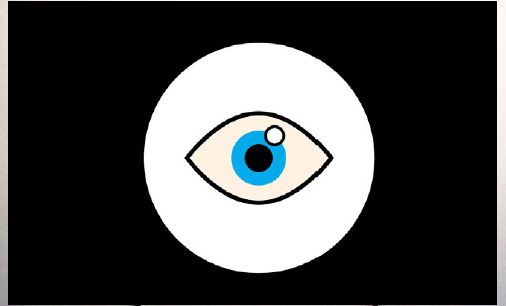 An elite Russian hacking team, a
historic ransomware attack, an
espionage group in the Middle East,
and countless small time cryptojackers
all have one thing in common.
Though their methods and objectives
vary, they all lean on leaked NSA
hacking tool EternalBlue to infiltrate
target computers and spread malware
across networks.
Leaked to the public not quite a
year ago, EternalBlue has joined a
long line of reliable hacker favorites.
The Conficker Windows worm
infected millions of computers in
2008, and the Welchia remote code
execution worm wreaked havoc 2003.
EternalBlue is certainly continuing
that tradition —and by all indications
it’s not going anywhere. If anything,
security analysts only see use of
the exploit diversifying as attackers
develop new, clever applications,
or simply discover how easy it is to
deploy.
“When you take something that’s
weaponized and a fully developed
concept and make it publicly available
you’re going to have that level
of uptake,” says Adam Meyers, vice
president of intelligence at the security
firm CrowdStrike. “A year later
there are still organizations that are
getting hit by EternalBlue —still organizations
that haven’t patched it.”
An elite Russian hacking team, a
historic ransomware attack, an
espionage group in the Middle East,
and countless small time cryptojackers
all have one thing in common.
Though their methods and objectives
vary, they all lean on leaked NSA
hacking tool EternalBlue to infiltrate
target computers and spread malware
across networks.
Leaked to the public not quite a
year ago, EternalBlue has joined a
long line of reliable hacker favorites.
The Conficker Windows worm
infected millions of computers in
2008, and the Welchia remote code
execution worm wreaked havoc 2003.
EternalBlue is certainly continuing
that tradition —and by all indications
it’s not going anywhere. If anything,
security analysts only see use of
the exploit diversifying as attackers
develop new, clever applications,
or simply discover how easy it is to
deploy.
“When you take something that’s
weaponized and a fully developed
concept and make it publicly available
you’re going to have that level
of uptake,” says Adam Meyers, vice
president of intelligence at the security
firm CrowdStrike. “A year later
there are still organizations that are
getting hit by EternalBlue —still organizations
that haven’t patched it.”
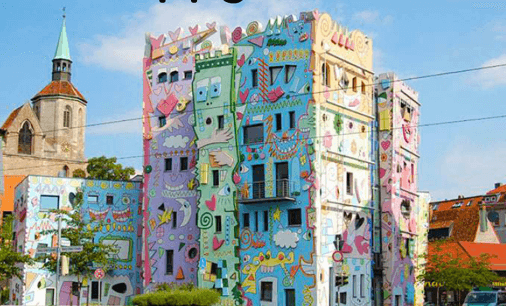
 What looks like a fully wireless
headset with separate left and
right earpieces is actually a promising
new product that can help bridge the
communication gap.
The heart of the process is Waverly’s
app, which both and your friend need
to download onto your phones (it’s
free on both iOS and Android). Then,
once you “sync” your conversation
through a matching QR code on the
app, you’re off and speaking. Press a
button on the app and talk into the
earpiece’s microphone to record what
you want to say. Your voice is then
piped through Waverly’s machine
translation software which converts it
to text on your friend’s app. If he also
has his own earpiece, your friend will
hear a translated version of what you
said, albeit via a computer voice.
Visit: www.waverlylabs.com
What looks like a fully wireless
headset with separate left and
right earpieces is actually a promising
new product that can help bridge the
communication gap.
The heart of the process is Waverly’s
app, which both and your friend need
to download onto your phones (it’s
free on both iOS and Android). Then,
once you “sync” your conversation
through a matching QR code on the
app, you’re off and speaking. Press a
button on the app and talk into the
earpiece’s microphone to record what
you want to say. Your voice is then
piped through Waverly’s machine
translation software which converts it
to text on your friend’s app. If he also
has his own earpiece, your friend will
hear a translated version of what you
said, albeit via a computer voice.
Visit: www.waverlylabs.com
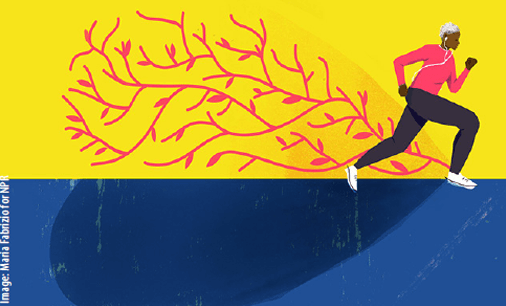 Eventually it happens to everyone.
As we age, even if we’re healthy,
the heart becomes less flexible, more
stiff and just isn’t as efficient in processing
oxygen as it used to be. In most
people the first signs show up in the
50s or early 60s. And among people
who don’t exercise, the underlying
changes can start even sooner.
“The heart gets smaller —stiffer,” says
Dr. Ben Levine, a sports cardiologist
at University of Texas Southwestern
Medical Center and director of the Institute
for Exercise and Environmental
Medicine at Texas Health Presbyterian
Hospital, in Dallas.
Think of the heart muscle as a rubber
band, Levine says. In the beginning,
the rubber band is flexible and pliable.
But put it in a drawer for 20 years and
it will emerge dry and brittle.
“That’s what happens to the heart
and blood vessels,” he says. And down
the road, that sort of stiffness can get
worse, he notes, leading to the breathlessness
and other symptoms of heart
failure, an inability of the heart to
effectively pump blood to the lungs or
throughout the body.
Fortunately for those in midlife,
Levine is finding that even if you
haven’t been an avid exerciser, getting
in shape now may head off that decline
and help restore your aging heart. He
and his colleagues published their
recent findings in the American Heart
Association’s journal, Circulation.
Eventually it happens to everyone.
As we age, even if we’re healthy,
the heart becomes less flexible, more
stiff and just isn’t as efficient in processing
oxygen as it used to be. In most
people the first signs show up in the
50s or early 60s. And among people
who don’t exercise, the underlying
changes can start even sooner.
“The heart gets smaller —stiffer,” says
Dr. Ben Levine, a sports cardiologist
at University of Texas Southwestern
Medical Center and director of the Institute
for Exercise and Environmental
Medicine at Texas Health Presbyterian
Hospital, in Dallas.
Think of the heart muscle as a rubber
band, Levine says. In the beginning,
the rubber band is flexible and pliable.
But put it in a drawer for 20 years and
it will emerge dry and brittle.
“That’s what happens to the heart
and blood vessels,” he says. And down
the road, that sort of stiffness can get
worse, he notes, leading to the breathlessness
and other symptoms of heart
failure, an inability of the heart to
effectively pump blood to the lungs or
throughout the body.
Fortunately for those in midlife,
Levine is finding that even if you
haven’t been an avid exerciser, getting
in shape now may head off that decline
and help restore your aging heart. He
and his colleagues published their
recent findings in the American Heart
Association’s journal, Circulation.

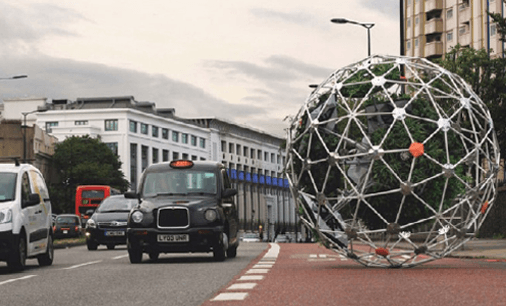
 In a milestone for the India’s progress
on adopting renewables, the
union territory of Diu has announced
that it is running entirely on solar
energy. Energy World reports:
“In a span of three years, Diu has
made rapid progress in solar power
generation. Limited to a geographical
area of just 42 sq km, Diu has become
the first Union territory where more
than 100% of the electricity need is
being met by solar power. In spite of
scarcity of land, solar power plants
have been installed in over 50 acres of
land”.
Diu generates a total of 13 megawatts
of electricity from solar
power-generating facilities. Around
3MW is generated by rooftop solar
plants and 10MW by its other solar
power plants.
Prior to this announcement, the
union territory was solely dependent
on the neighboring Gujarat government
for its water and electricity
needs. This led to significant costs,
as well as concerns about the territory’s
energy security. As a result, the
Diu government invested in creating
a solar energy hub that would supply
the territory.
Read full note:
In a milestone for the India’s progress
on adopting renewables, the
union territory of Diu has announced
that it is running entirely on solar
energy. Energy World reports:
“In a span of three years, Diu has
made rapid progress in solar power
generation. Limited to a geographical
area of just 42 sq km, Diu has become
the first Union territory where more
than 100% of the electricity need is
being met by solar power. In spite of
scarcity of land, solar power plants
have been installed in over 50 acres of
land”.
Diu generates a total of 13 megawatts
of electricity from solar
power-generating facilities. Around
3MW is generated by rooftop solar
plants and 10MW by its other solar
power plants.
Prior to this announcement, the
union territory was solely dependent
on the neighboring Gujarat government
for its water and electricity
needs. This led to significant costs,
as well as concerns about the territory’s
energy security. As a result, the
Diu government invested in creating
a solar energy hub that would supply
the territory.
Read full note:
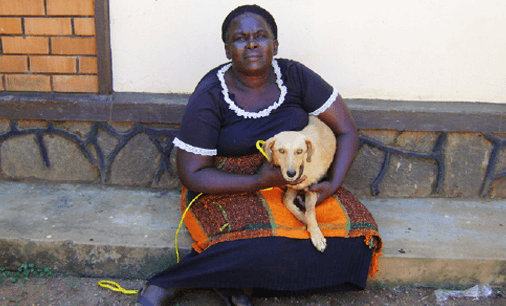 Northern Uganda is one of the
most impoverished places on
earth, where people are suffering not
only from poverty but also from war
trauma. The BIG FIX Uganda uses
the powerful healing power of dog
companionship to help war trauma
survivors as part of a program of
psycho-social rehabilitation.
Dogs in need of good homes are
rehabilitated by a team, temperament
tested and spayed/neutered. They
then are placed with war trauma survivors
selected to be part of The Comfort
Dog Project. The guardians make a
lifetime commitment to their dogs, live
with and care for their dogs, and participate
in a weekly training program.
Upon graduation, the dog-guardian
teams become project ambassadors,
visiting villages and schools to educate
others about the importance of being
kind to animals, teach others how to
use positive reinforcement training
techniques, and to serve as testimony
of the healing power of human-dog
bonds.
Northern Uganda is an area still
recovering from twenty years of war.
Most residents lost their homes and
possessions and were forced to live in
camps for more than 10 years. Children
were abducted and forced to carry out
carnage, women and girls raped and
held as sex slaves, and many people
were brutally murdered. ...
Read full note: http://www.thebigfixuganda.org/
the-comfort-dog-project.html
Northern Uganda is one of the
most impoverished places on
earth, where people are suffering not
only from poverty but also from war
trauma. The BIG FIX Uganda uses
the powerful healing power of dog
companionship to help war trauma
survivors as part of a program of
psycho-social rehabilitation.
Dogs in need of good homes are
rehabilitated by a team, temperament
tested and spayed/neutered. They
then are placed with war trauma survivors
selected to be part of The Comfort
Dog Project. The guardians make a
lifetime commitment to their dogs, live
with and care for their dogs, and participate
in a weekly training program.
Upon graduation, the dog-guardian
teams become project ambassadors,
visiting villages and schools to educate
others about the importance of being
kind to animals, teach others how to
use positive reinforcement training
techniques, and to serve as testimony
of the healing power of human-dog
bonds.
Northern Uganda is an area still
recovering from twenty years of war.
Most residents lost their homes and
possessions and were forced to live in
camps for more than 10 years. Children
were abducted and forced to carry out
carnage, women and girls raped and
held as sex slaves, and many people
were brutally murdered. ...
Read full note: http://www.thebigfixuganda.org/
the-comfort-dog-project.html
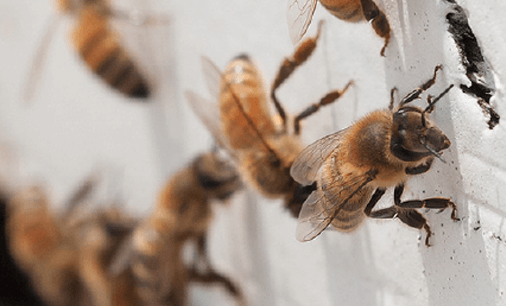 After a major review of scientific
evidence, the European Food
Safety Authority has concluded that
neonicotinoids harm bees. The announcement
has prompted calls for
a Europe-wide ban on neonicotinoid
pesticides.
In its press release, entitled ”Neonicotinoids:
Risks to Bees Confirmed,” the
EFSA states:
“Most uses of neonicotinoid pesticides
represent a risk to wild bees and
honeybees, according to assessments
published today by EFSA. The Authority
has updated its risk assessments
of three neonicotinoids –clothianidin,
imidacloprid and thiamethoxam–
that are currently subject to restrictions
in the EU because of the threat
they pose to bees.
These new conclusions update
those published in 2013, after which the European Commission imposed
controls on use of the substances.
The EFSA embarked on this review
as European authorities prepare to
decide whether to continue Europe’s
restrictions on several neonicotinoids,
a ruling that is due in April.
These substances form the main
ingredient in many of the world’s most
popular pest control products, and
they’ve become a staple for the farming
community. However, scientific
research has repeatedly demonstrated
an impact on bees. While the impact
varies between species and depending
on the degree of exposure, a scientific
consensus has been clear for some
time: Neonicotinoids are contributing
to pollinator die-off.
Read full note:
After a major review of scientific
evidence, the European Food
Safety Authority has concluded that
neonicotinoids harm bees. The announcement
has prompted calls for
a Europe-wide ban on neonicotinoid
pesticides.
In its press release, entitled ”Neonicotinoids:
Risks to Bees Confirmed,” the
EFSA states:
“Most uses of neonicotinoid pesticides
represent a risk to wild bees and
honeybees, according to assessments
published today by EFSA. The Authority
has updated its risk assessments
of three neonicotinoids –clothianidin,
imidacloprid and thiamethoxam–
that are currently subject to restrictions
in the EU because of the threat
they pose to bees.
These new conclusions update
those published in 2013, after which the European Commission imposed
controls on use of the substances.
The EFSA embarked on this review
as European authorities prepare to
decide whether to continue Europe’s
restrictions on several neonicotinoids,
a ruling that is due in April.
These substances form the main
ingredient in many of the world’s most
popular pest control products, and
they’ve become a staple for the farming
community. However, scientific
research has repeatedly demonstrated
an impact on bees. While the impact
varies between species and depending
on the degree of exposure, a scientific
consensus has been clear for some
time: Neonicotinoids are contributing
to pollinator die-off.
Read full note:

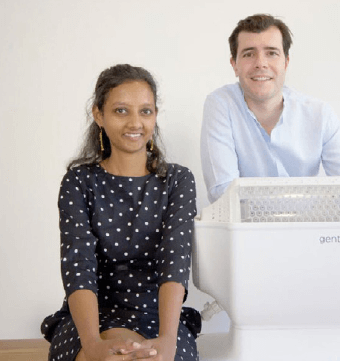 This hand-powered
device washes clothes
in five minutes with
less water than washing
machines and zero
electricity.
www.gentlewasher.com
This hand-powered
device washes clothes
in five minutes with
less water than washing
machines and zero
electricity.
www.gentlewasher.com
 Take the stress
away from smartphones. An anti-glare,
energy-efficient phone, with a matte
screen to display messages, time, alarms
and more.
Take the stress
away from smartphones. An anti-glare,
energy-efficient phone, with a matte
screen to display messages, time, alarms
and more.
 Universal Charging
Station. Adds two USB charging
ports and a phone/tablet charging station
to a wall outlet by simply plugging
it into a dual 3-prong outlet.
www.thegrommet.com
Universal Charging
Station. Adds two USB charging
ports and a phone/tablet charging station
to a wall outlet by simply plugging
it into a dual 3-prong outlet.
www.thegrommet.com
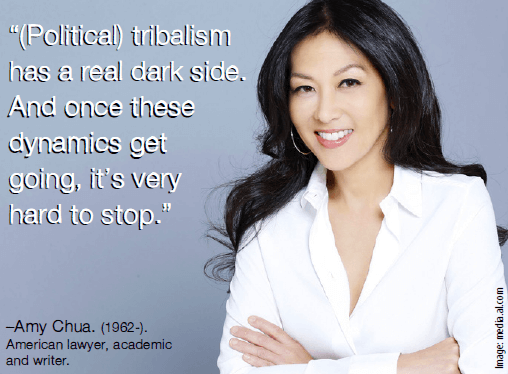 “(Political) tribalism
has a real dark side.
And once these
dynamics get
going, it’s very
hard to stop.”
“(Political) tribalism
has a real dark side.
And once these
dynamics get
going, it’s very
hard to stop.”
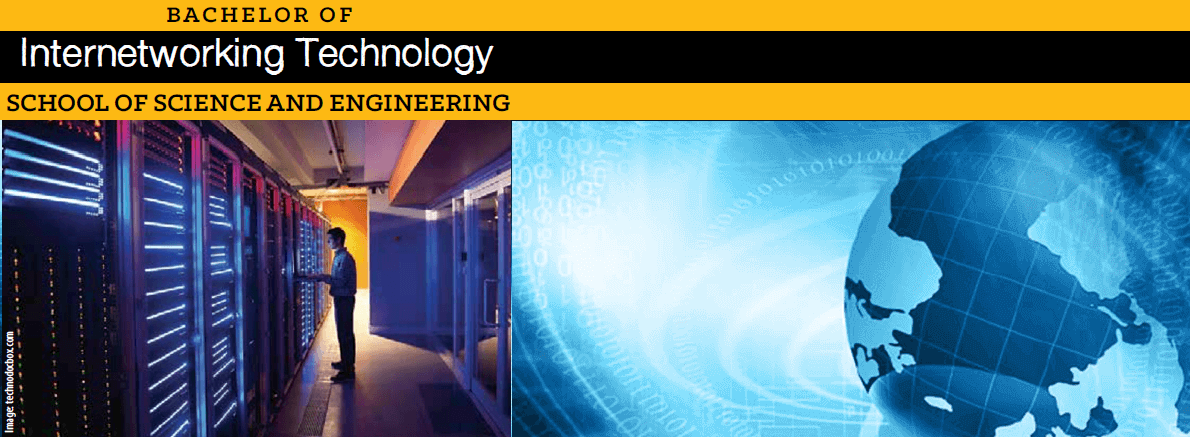 The AIU Distance Learning Bachelor
of Science in Internetworking
Technology program will be a custommade
program, designed just for you
by you and your academic advisor.
This flexibility to meet student needs
is seldom found in other distance
learning programs. Our online program
does not require all students to
take the same subjects/courses, use
the same books, or learning materials.
Instead, the online Bachelor program
curriculum is designed individually
by the student and academic advisor.
It specifically addresses individual
strengths and weaknesses with respect
to market opportunities in the
student’s major and intended field of
work. Understanding that industry and
geographic factors should influence
the content of the curriculum instead
of a standardized one-fits-all design is
the hallmark of AIU’s unique approach
to adult education. This philosophy
adress the dynamic and constantly
changing environment of working
professionals by helping adult students
in reaching their professional and
personal goals within the scope of the
degree program.
The AIU Distance Learning Bachelor
of Science in Internetworking
Technology program will be a custommade
program, designed just for you
by you and your academic advisor.
This flexibility to meet student needs
is seldom found in other distance
learning programs. Our online program
does not require all students to
take the same subjects/courses, use
the same books, or learning materials.
Instead, the online Bachelor program
curriculum is designed individually
by the student and academic advisor.
It specifically addresses individual
strengths and weaknesses with respect
to market opportunities in the
student’s major and intended field of
work. Understanding that industry and
geographic factors should influence
the content of the curriculum instead
of a standardized one-fits-all design is
the hallmark of AIU’s unique approach
to adult education. This philosophy
adress the dynamic and constantly
changing environment of working
professionals by helping adult students
in reaching their professional and
personal goals within the scope of the
degree program.
 Atlantic International University is accredited by the Accreditation Service for International
Schools, Colleges and Universities (ASIC). ASIC Accreditation is an internationally
renowned quality standard for colleges and universities. Visit ASIC’s Directory of Accredited
Colleges and Universities. ASIC is a member of CHEA International Quality Group (CIQG) in
the USA, an approved accreditation body by the Ministerial Department of the Home Office in the UK,
and is listed in the International Directory of the Council for Higher Education Accreditation (CHEA).
AIU meets all state and federal laws as a degree-granting institution in the United States and the State of
Hawaii. The University was legally established by corporate charter in 1998 and is in good standing.
Atlantic International University is accredited by the Accreditation Service for International
Schools, Colleges and Universities (ASIC). ASIC Accreditation is an internationally
renowned quality standard for colleges and universities. Visit ASIC’s Directory of Accredited
Colleges and Universities. ASIC is a member of CHEA International Quality Group (CIQG) in
the USA, an approved accreditation body by the Ministerial Department of the Home Office in the UK,
and is listed in the International Directory of the Council for Higher Education Accreditation (CHEA).
AIU meets all state and federal laws as a degree-granting institution in the United States and the State of
Hawaii. The University was legally established by corporate charter in 1998 and is in good standing.
 If a student outside the U.S. wishes to carry
out a particular procedure within a country’s
Department of Education regarding their
degree earned at AIU, such procedures are to
be carried out independently by the student.
AIU respects the unique rules and regulations
of each country and does not intervene or
influence the respective authorities. We
recommend prospective students who
intend to carry out such procedures
outside the U.S. to verify in detail the
steps and requirements needed in
order to be fully informed.
If a student outside the U.S. wishes to carry
out a particular procedure within a country’s
Department of Education regarding their
degree earned at AIU, such procedures are to
be carried out independently by the student.
AIU respects the unique rules and regulations
of each country and does not intervene or
influence the respective authorities. We
recommend prospective students who
intend to carry out such procedures
outside the U.S. to verify in detail the
steps and requirements needed in
order to be fully informed.
 The School of Business and Economics
allows aspiring and practicing
professionals, managers, and entrepreneurs
in the private and public sectors
to complete a self paced distance
learning degree program of the highest
academic standard.
The ultimate goal is to empower
learners and help them take advantage
of the enormous array of resources
from the world environment in order
to eliminate the current continuum of
poverty and limitations.
Degree programs are designed for
those students whose professional experience has been in business,
marketing, administration, economics,
finance and management.
The School of Business and Economics
allows aspiring and practicing
professionals, managers, and entrepreneurs
in the private and public sectors
to complete a self paced distance
learning degree program of the highest
academic standard.
The ultimate goal is to empower
learners and help them take advantage
of the enormous array of resources
from the world environment in order
to eliminate the current continuum of
poverty and limitations.
Degree programs are designed for
those students whose professional experience has been in business,
marketing, administration, economics,
finance and management.
 The School of Social and Human Studies
is focused on to the development of
studies which instill a core commitment
to building a society based on social and
economic justice and enhancing opportunities
for human well being.
The founding principles lie on the
basic right of education as outlined
in the Declaration of Human Rights.
We instill in our students a sense of
confidence and self reliance in their
ability to access the vast opportunities
available through information channels,
the world wide web, private, public,
nonprofit, and nongovernmental organizations in an ever expanding
global community.
Degree programs are aimed towards
those whose professional life has been
related to social and human behavior,
with the arts, or with cultural studies.
The School of Social and Human Studies
is focused on to the development of
studies which instill a core commitment
to building a society based on social and
economic justice and enhancing opportunities
for human well being.
The founding principles lie on the
basic right of education as outlined
in the Declaration of Human Rights.
We instill in our students a sense of
confidence and self reliance in their
ability to access the vast opportunities
available through information channels,
the world wide web, private, public,
nonprofit, and nongovernmental organizations in an ever expanding
global community.
Degree programs are aimed towards
those whose professional life has been
related to social and human behavior,
with the arts, or with cultural studies.
 The School of Science and Engineering
seeks to provide dynamic, integrated,
and challenging degree programs
designed for those whose experience
is in industrial research, scientific production,
engineering and the general
sciences. Our system for research and
education will keep us apace with the
twenty-first century reach scientific
advance in an environmentally and
ecologically responsible manner to allow
for the sustainability of the human
population. We will foster among our
students a demand for ethical behavior,
an appreciation for diversity, an understanding
of scientific investigation,
The School of Science and Engineering
seeks to provide dynamic, integrated,
and challenging degree programs
designed for those whose experience
is in industrial research, scientific production,
engineering and the general
sciences. Our system for research and
education will keep us apace with the
twenty-first century reach scientific
advance in an environmentally and
ecologically responsible manner to allow
for the sustainability of the human
population. We will foster among our
students a demand for ethical behavior,
an appreciation for diversity, an understanding
of scientific investigation,
 With access to a global catalog created and maintained collectively by more than
9,000 participating institutions, AIU students have secured excellent research
tools for their study programs.
With access to a global catalog created and maintained collectively by more than
9,000 participating institutions, AIU students have secured excellent research
tools for their study programs.